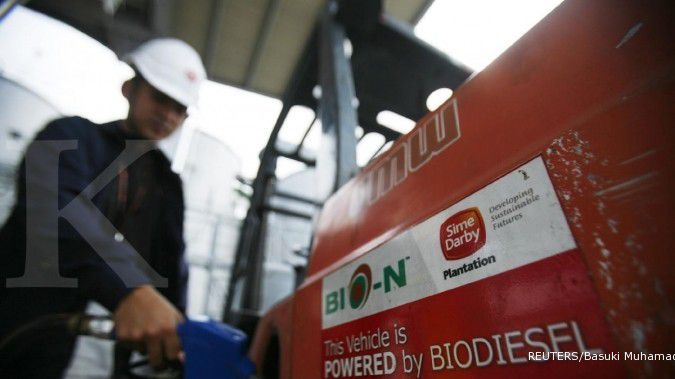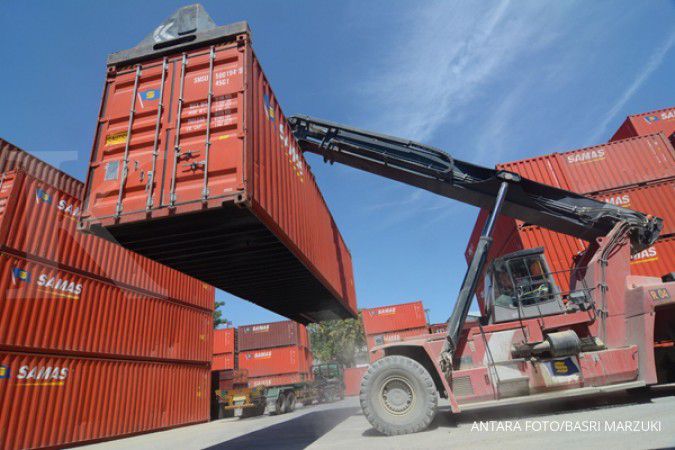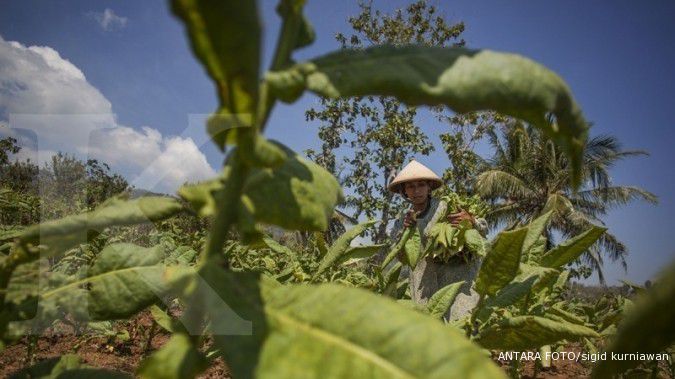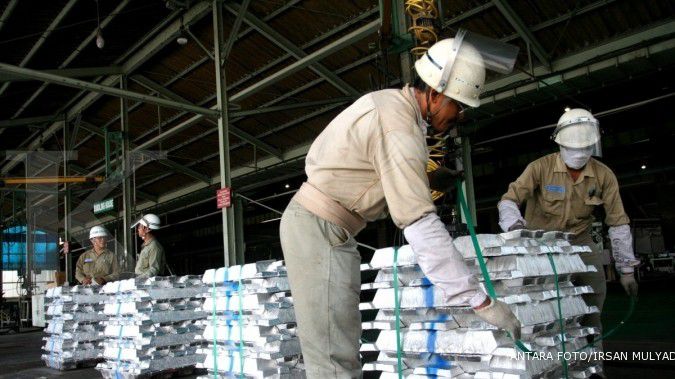JAKARTA. The World Bank has revised its projection of Indonesia’s current-account deficit (CAD) as it estimates that the country’s mineral ore export ban will squeeze exports this year.
In its latest quarterly report, launched on Tuesday, the World Bank set Indonesia’s CAD target at 2.9 percent of gross domestic product (GDP), from 2.6 percent, the previous estimate made in December.
With the new projection, this year’s total deficit is expected to stand at US$24.4 billion, down from the $28.5 billion that Indonesia posted in 2013.
According to World Bank chief economist Jim Brumby, part of that deficit would be due to the mineral ore exports ban, which took effect in January.
“We estimate that there will be a $5.3 billion trade deficit in 2014. For the next three years, until 2017, the total deficit in the trade balance caused by the ban will amount to $12.5 billion,” he said.
The Indonesian government has previously said that the ban would help Indonesia’s GDP and trade balance. It argues that by urging industry players to process ores domestically, the country will see an increase in value-added mineral exports, which will later bring in higher revenue.
However, following the ban’s implementation, Indonesia saw its exports fall to $14.48 billion in January, down 14.6 percent from the previous month. Year-on-year, the export figure declined 5.8 percent.
Data from the Central Statistics Agency (BPS) shows that the decline was driven by lower exports in the non-oil and gas segment, especially in ores. Ore exports recorded the steepest decline, tumbling 70.1 percent month-on-month to $291.8 million.
The fall in exports eventually led to Indonesia’s trade balance swinging back into the red, with a $430.6 billion deficit in January, overturning the $1.5 billion surplus only a month before.
Despite revising the CAD estimate, the World Bank upheld its projection of Indonesia’s GDP growth target at 5.3 percent for 2014.
Several remaining domestic and external factors would affect the growth, according to Brumby.
“Domestically, the upcoming elections will hopefully lead to a boost in consumption, even though investment will still be weak,” Brumby said.
“Externally, we can see that the global risk appetite is stronger than expected. That will boost portfolio inflows to emerging markets,
including Indonesia,” he added.
Meanwhile, Bank Danamon chief economist Anton Gunawan also predicted that this year’s CAD would stay at around 2.9 percent of GDP. However, according to Anton, the oil and gas segment will play a bigger role than the ore export ban in relation to the trade balance and CAD.
“The pressing concern is the fuel subsidy because it has put a big burden on our budget. Will the new administration have the guts to increase the price of subsidized fuel and allocate the funds where they are needed?” he asked, after attending the report’s launch.
Separately, Bank Mandiri chief economist Destry Damayanti said that the ore export ban would affect the country negatively in the short term with $6.5 billion in potential losses this year if the government insisted on forbidding all kinds of mineral ore exports.
“But the ban will be beneficial in the long run because we will see products wtih greater value. What is important is that the government provides the necessary infrastructure, so that private firms will be willing to invest in smelters,” she said, adding that the bank set the CAD estimate at 2.7 percent.
World Bank revises RI’s CAD outlook
March 19, 2014, 10.37 AM
/2014/03/03/695635935p.jpg)
PT Aneka Tambang Tbk (Antam) Luncurkan Produk Emas Batangan Motif Batik
Source: The Jakarta Post
| Editor: Asnil Amri
Latest News
-
February 12, 2026, 02.48 PM
Indonesia's Medco Expansion Plans Bet on Rising Energy Demand in Southeast Asia
-
February 11, 2026, 11.55 PM
Sumbawa Regency Submits BRIN’s Scientific Study to Komnas HAM
-
February 11, 2026, 05.12 PM
Indonesian State-Owned Fund Ready to Increase Investment after Stock Market Plunge
-
February 11, 2026, 02.14 PM
Indonesia Arrests 11 for Alleged Corruption Over Palm Oil Exports
-
February 10, 2026, 05.28 PM
Indonesia Says Proposed Gaza Peacekeeping Force Could Total 20,000 Troops
-
February 10, 2026, 02.44 PM
Indonesia Distributes $648 Million in Subsidies for Palm Oil Replanting Programme
-
February 10, 2026, 09.47 AM
FTSE Russell Postpones Indonesia Index Review
-
February 10, 2026, 06.42 AM
GLOBAL MARKETS-Stock Indexes Gain with US Technology Shares, Yen Strengthens
-
February 09, 2026, 10.13 PM
Gold Rises as Dollar Slips, Focus Turns to US Jobs Data














